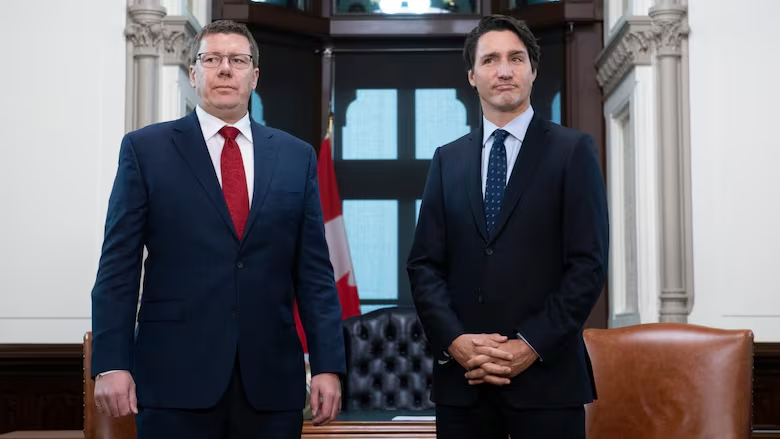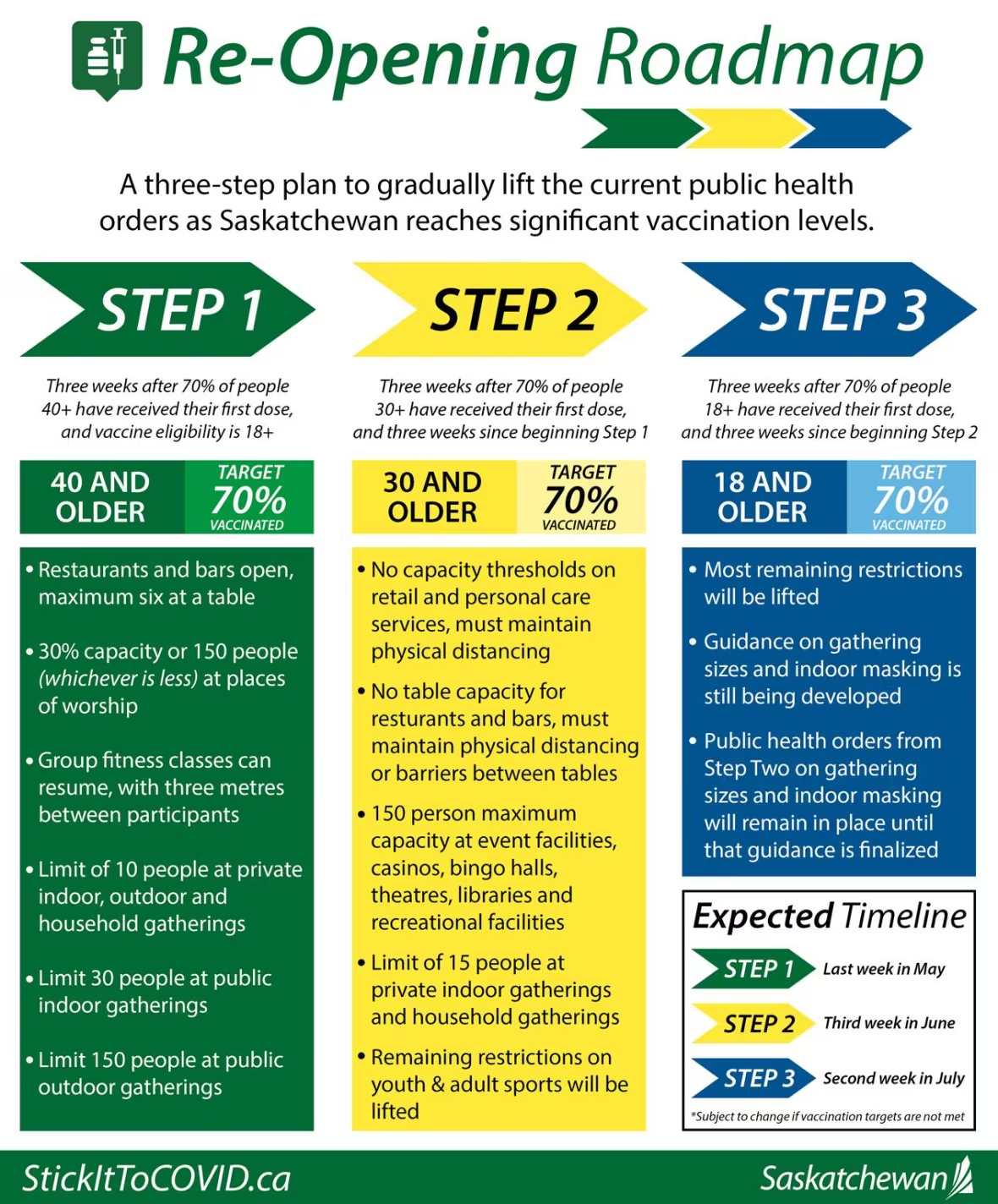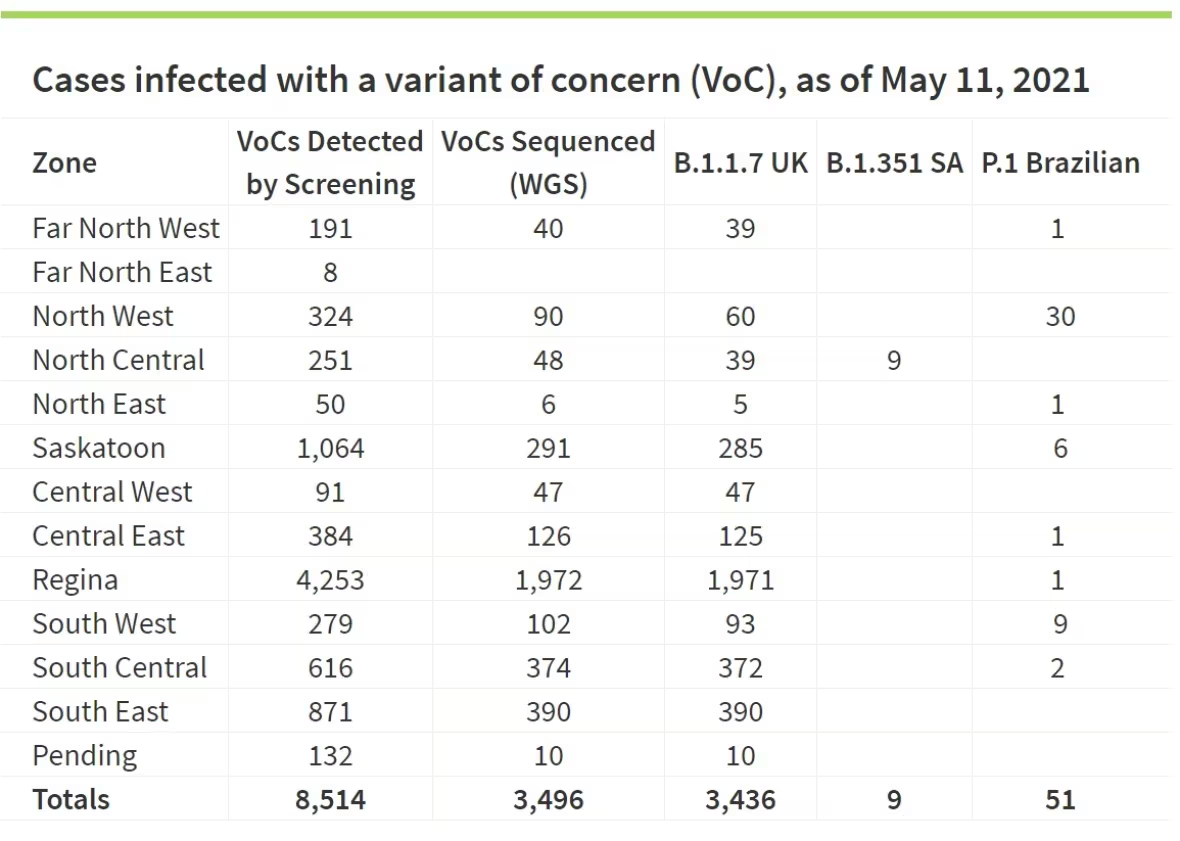Sask. defends its vaccine-focused reopening plan after Trudeau urges caution
'We're going to have a one-dose spring, quite likely a two-dose summer,' Saskatchewan Premier Scott Moe says

Saskatchewan Premier Scott Moe is defending his government's vaccine-focused reopening plan after Prime Minister Justin Trudeau cautioned provinces against relaxing COVID-19 public health measures too early.
Speaking to reporters at a COVID-19 briefing on Tuesday, Trudeau asked provinces to maintain strict public health measures until COVID-19 case counts are much lower than they are now so that Canadians can enjoy a "one-dose summer."
Pointing to modelling data from the Public Health Agency of Canada, Trudeau said provinces should begin to lift public health restrictions only once 75 per cent of the adult population has had at least one vaccine dose.
Saskatchewan's gradual, three-step reopening plan has a different target, however.

Under that plan, which was the first of its kind in Canada when unveiled last week, some lifting or relaxing of restrictions will take place only if vaccine appointments are open to people aged 18 and over and three weeks have elapsed since 70 per cent of residents aged 40 and over have received one dose. After the province reached that 70-per-cent target on Sunday, Moe's government set May 30 as the tentative date for Step 1.
Responding to Trudeau's remarks, Moe said the three-week delay means that by the time May 30 rolls around, more than 75 per cent of people aged 40 and over will likely have received a first dose. As of Tuesday, 72 per cent of that age cohort had been partially vaccinated.
Moe said Saskatchewan is also making good progress toward the second benchmark for additional relaxation, wherein 70 per cent of people aged 30 and over have received a first dose. That figure stood at 61 per cent as of Tuesday.
"We're not going to have a Trudeau summer here in Saskatchewan," Moe said. "We're going to have a one-dose spring, quite likely a two-dose summer as we are planning to have second doses available to everyone in the province by sometime in the middle of July."
Moe added that Saskatchewan will not instantly snap back into its pre-COVID status.
"You need to gradually reopen the economy, bring people back into their communities, allow people time to to reintegrate back into what life used to be," he said.
By the time Saskatchewan reaches Steps 2 and 3 of its reopening plan, the province will be at "very high first-dose numbers," Moe predicted.
Earlier on Tuesday, Health Minister Paul Merriman was asked about Saskatchewan's reopening plan not being predicated on two-dose vaccination targets.
"I think we're going to pivot our messaging very quickly to that. You have to be fully vaccinated. One shot is not enough," Merriman said.
Saskatchewan NDP Leader Ryan Meili, who is also a physician, said strong messaging pushing second doses will be key.
"We are seeing studies showing that in particular with the variants, you're at greater risk of still catching COVID-19 even with one shot," Meili said.
"We cannot relax based on a single shot alone. I really encourage anybody who's got their first shot, don't think you're good. Make sure you're watching for when it's your opportunity to get the second one."
Saskatchewan reported 186 new cases of COVID-19 on Tuesday, below the seven-day average of 204.
The province also reported four deaths, three of which were among people living in the province's northwest region, which has been hardest hit by the more transmissible P1 variant.

There were 162 infected Saskatchewan residents in hospital, including 32 people under intensive care as of Monday.
That's down from one week ago, when there were 174 COVID-19 patients including 39 people in ICU.
with files from John Paul Tasker

